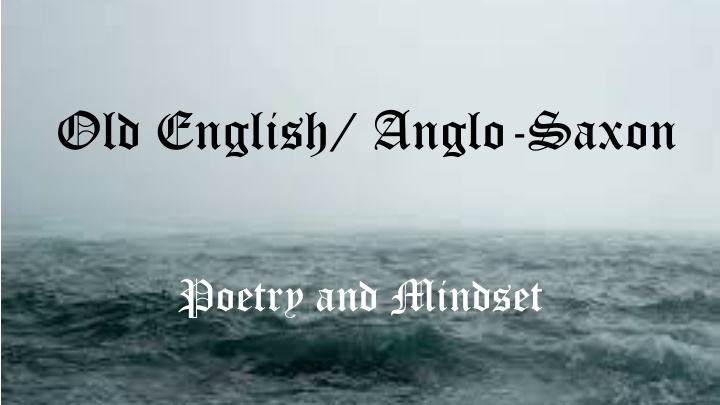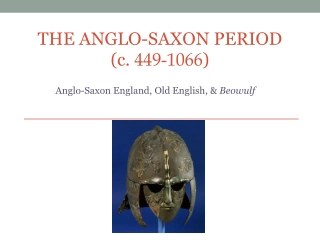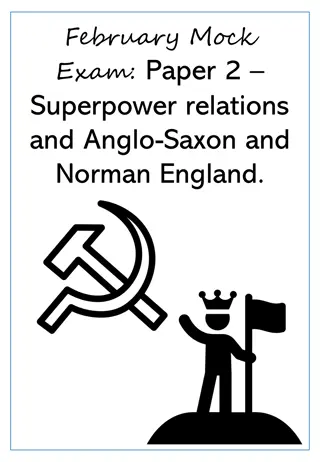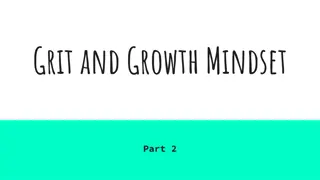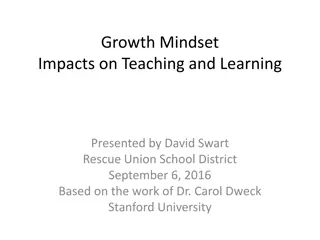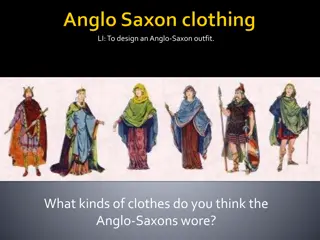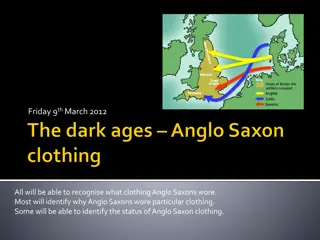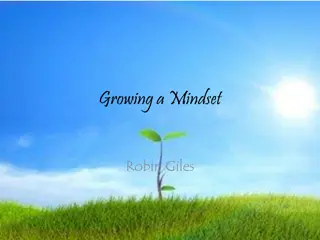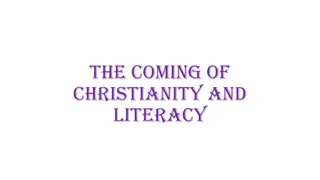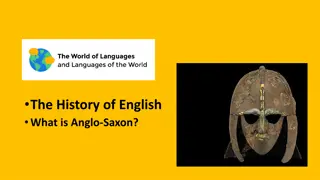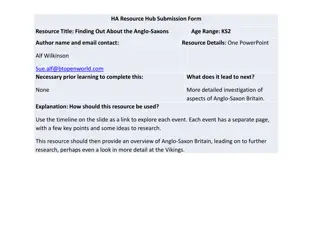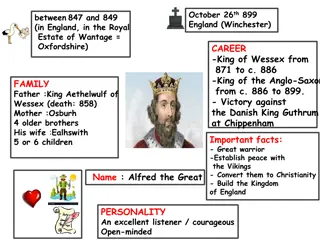Anglo-Saxon Poetry and Mindset Exploration
Delve into the world of Old English and Anglo-Saxon poetry reflecting Norse mythology, warrior culture, and Christian influences. Explore the themes of loss, identity, and wisdom in works like "The Wanderer," contemplating the speaker's journey through isolation and remembrance.
Download Presentation

Please find below an Image/Link to download the presentation.
The content on the website is provided AS IS for your information and personal use only. It may not be sold, licensed, or shared on other websites without obtaining consent from the author.If you encounter any issues during the download, it is possible that the publisher has removed the file from their server.
You are allowed to download the files provided on this website for personal or commercial use, subject to the condition that they are used lawfully. All files are the property of their respective owners.
The content on the website is provided AS IS for your information and personal use only. It may not be sold, licensed, or shared on other websites without obtaining consent from the author.
E N D
Presentation Transcript
Old English/ Anglo-Saxon Poetry and Mindset
The Anglo-Saxon World 5thcentury (withdrawal of Romans) until 11thcentury (Norman invasion) A mixture of: a. local tribes (Celts, Picts, Angles, Jutes Britons), b. leftover Romans (since the 5thcentury AD), c. and constant waves of Nordic/Germanic invaders, especially Danes in the 9th century (Danes, Geats, Vikings, Saxons); only Wessex, under king Alfred the Great, remained Anglo-Saxon Seven large kingdoms, christianized by the 7thcentury and united in 947AD by king thelstan as England. Old English, a Germanic language with Scandinavian additions, replaces Celtic as the language of the people The Anglo-Saxon Chronicle (9thc. AD), compiled by order of Alfred the Great, the first major document in English.
The Old English Mindset Influence from Norse mythology pessimism, warrior-culture Strong feudal/clan identity, devotion to the leader Sea-faring invaders vs agrarian islanders A sense of being different than the continental peoples Old gods vs Christianity
The Wanderer An anonymous, untitled Old English (Anglo-Saxon) elegy of 115 alliterative lines, probably written in the late 9th-early 10thcentury Contained, along with other similar poems, in the Exeter Book (10th century manuscript); was identified as an individual poem in the 19th century. Old English recitation with modern English translation at: The Wanderer (Old English recitation) - YouTube
Themes and Form Story: what has happened to the speaker/s? Tone Synaesthesia and sea metaphors Embedded dialogue effect? Alteration of remembrance of good past times and current desolation (effect?) Survivor s guilt syndrome? Effect of alliterative verse? Ubi sunt c/c to Tolkien s rendition in The Lord of the Rings (film version at: (LOTR) The Lament for the Rohirrim YouTube) Attitude towards sadness (professed vs acted) Relationship to: God (which god?); his lord; other people he meets Didacticism: the meaning of wisdom; relevance today
